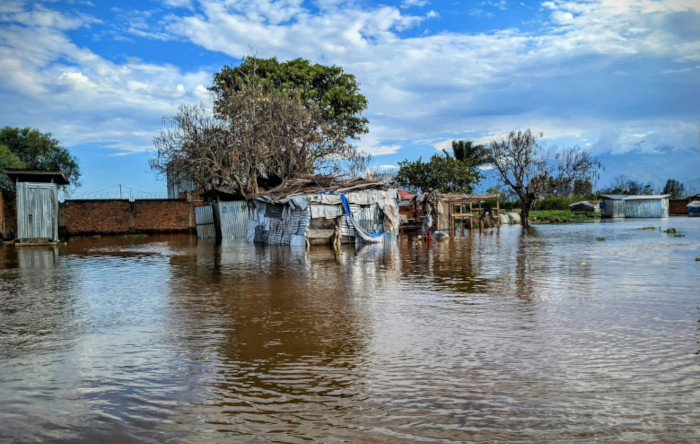Bonn Climate Conference 2024

Loss and damage caused by climate change are growing fast. It is urgent to act and create measures that contribute to poverty eradication.
People and communities in extreme poverty around the world are hardest hit by the effects of climate change. Yet they are the least responsible for its causes.
Those in extreme poverty have the fewest resources to protect themselves from the dramatic consequences of the environmental crisis. While the wealthy in each country have the means to adapt without financial support, a significant percentage of the world population is unable to overcome both material and immaterial loss and damage caused by climatic events. Having experienced first-hand suffering from recent extreme climate events (cyclones, tornadoes, floods, droughts, heat waves, forest fires, etc.), those with lived experience of extreme poverty must be at the centre of climate action.
An example of the reality of people with lived experience of poverty and climate displacement in DR Congo:
- In the Democratic Republic of the Congo climatic disasters hit the low-income population hardest. The loss of habitable and arable land is a reality. This is happening in Uvira, a town 126 km from the city of Bukavu. Since April 2020, flooding from the Mulongwe River has forced many to move. In 2024, the situation deteriorated further with the rising waters of Lake Tanganyika, affecting the Kanvivira displacement camps forcing many to migrate in search of shelter.
- Kalehe on the western shores of lake Kivu, witnessed the Democratic Republic of the Congo’s most devastating natural disaster in May 2023. As torrential rains devastated the villages of Bushushu and Nyamukubi, causing deaths of more than 582 people, approximately 6,066 people went missing, leaving behind orphans, separated or unaccompanied children, disabled and traumatized people. The extreme damage had effects on the housing, health, education, infrastructure, agriculture, fishing and livestock.
- The situation in Kalehe is alarming. Struck by a major natural disaster for the first time in 2014 it recently marked this sad anniversary with families still living in the Ihusi Camp for over a decade. These families are now joined by those displaced by catastrophe of 2023.
- Climatic disasters greatly compromise the future of children and condemn their families to deep poverty, leading to the loss of biodiversity, cultural wealth, ancestral lands, livestock and agricultural crops therefore depriving families their basic rights.
Bonn Climate Conference 2024
For the Bonn Climate Conference of the United Nations (SB60), an ATD Fourth World delegation will give visibility to the reality of what loss and damage really looks like for the most marginalized and discriminated people all around the world; guaranteeing that the eradication of poverty is included in the climate decisions made by the governments.
National, regional and international institutions have committed to avert, minimize and address climate-related loss and damage in an open, inclusive and non-prescriptive manner. ATD Fourth World believes that, to do so;
it’s important that people in poverty have the tools needed to face and overcome the loss and damages they suffer.
The best way to do this is to implement a participatory process that involves people with lived experience of poverty as stakeholders and partners to ensure that actions taken to address the loss and damage cased by climate change answers their needs.
IDEEP
An example of best practices is the Inclusive and Deliberative Elaboration & Evaluation of Policies (IDEEP). A tool created by ATD Fourth World in partnership with the UN Special Rapporteur on Extreme Poverty and Human Rights. This tool aims to guide decision-makers to ensure strong participation of people with lived experience of poverty in the design, implementation and assessment of projects or policies that have impacts on them.
We must stop future loss and damage caused by climate change. This means acting now to mitigate greenhouse gas emissions and adapt to climate change. For this to become a reality, it is urgent to create measures that reduce greenhouse-gas emissions, paying special attention and involving people and communities living in poverty.
A just transition that is respectful to the living conditions, culture and dignity of all is the way to reduce the dramatic consequences of climate change.
The States agreed (in the Glasgow Dialogue of 2021) that just transition measures must take into account the eradication of poverty, as well as the creation of decent work and quality jobs. Now is the time to implement these common commitments.
To ensure that people living in poverty are not left behind, the measures and decisions taken by governments at the Bonn Conference must take account of these five recommendations:
- place a special emphasis on the bottom 20% to ensure that no one is left behind
- develop, implement and evaluate projects and policies with people experiencing poverty
- ensure that climate change finance focusses on populations in vulnerable situations
- implement and improve social protection floors in all countries to combat social and material deprivation and insufficient and precarious income
- ensure that people living in poverty can benefit from training and quality jobs and decent work towards an economy that respects people and the planet
Therefore, ATD Fourth World calls upon all authorities and institutions at all levels, governments, businesses, NGOs, and citizens of the world to include these proposals in their Bonn Conference commitments.
If we reduce greenhouse gas emissions with measures that contribute to poverty eradication, we reduce the impacts of climate change for the entire population.
If people in situations of poverty can overcome the loss and damage caused by climate change, we can all overcome the loss and damage caused by climate change.
If people in situations of poverty have the tools to adapt to climate change, so will the entire population.
If people in situations of poverty have the tools to escape poverty, no one will ever again be at risk of falling into it.
Read ATD Fourth World’s Bonn Climate Conference position paper

